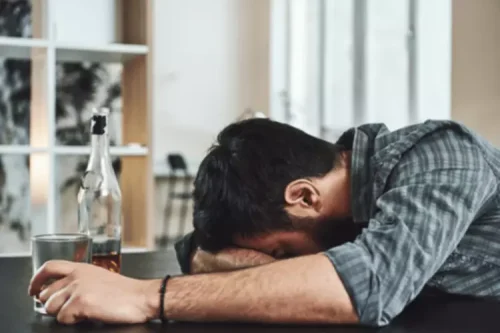
More mild alcohol withdrawal symptoms include tremors, weakness, sweating, gastrointestinal symptoms, fast heart rate, headache, and elevated blood pressure. Alcohol withdrawal refers to the physical and mental effects a person experiences after stopping prolonged and heavy alcohol use. When you suddenly stop drinking, your body is deprived of the effects of alcohol and requires time to adjust to functioning without it. Depending on how long you have used alcohol and alcoholism how much you typically drink, the severity of these symptoms can range from mild to severe. Alcohol withdrawal syndrome can range in severity from mild to fatal, making it crucial for patients to present to care for evaluation of their symptoms. Patients who have had prior complicated withdrawals should not attempt to decrease their alcohol intake without consultation with their healthcare team.

Learn more about Alcohol Withdrawal

It’s important to get medical help even if you have mild symptoms of withdrawal, as it’s difficult to predict in the beginning how much worse the symptoms could get. For mild alcohol withdrawal that’s not at risk of worsening, your provider may prescribe carbamazepine or gabapentin to help with symptoms. It affects about 50% of people with alcohol use disorder who stop or significantly decrease their alcohol intake. AUD is the most common substance use disorder in the U.S., affecting 28.8 million adults.
What are the symptoms of alcohol withdrawal?
Symptoms can begin 6 hours after a person’s last drink and typically peak around 72 hours. Heavy alcohol use also depletes the body of vital electrolytes and vitamins, such as folate, magnesium, and thiamine. Therefore, treatment may also include electrolyte corrections and multivitamin fluids. The hallucinations are typically visual but can also include auditory illusions. Chronic alcohol use can cause complex changes in the brain, including the neurotransmitters dopamine and gamma-aminobutyric acid (GABA), which affect excitement and a person’s sense of reward. By Buddy TBuddy T is a writer and founding member of the Online Al-Anon Outreach Committee with decades of experience writing about alcoholism.

Alcohol Withdrawal Syndrome
In the United States, most states have low-cost or free rehabilitation programs for those who are uninsured. Research shows people who have a supportive social network are more likely to remain alcohol-free after withdrawal. Those with a wider circle of alcohol withdrawal support have a better chance of staying sober. They should also make sure you attend your counseling appointments and visit the doctor regularly for any routine blood tests that may be ordered.
Conditions
- Ethanol is the primary alcohol that’s ingested by people with alcohol use disorder.
- These may still be mild, or the existing symptoms might increase in severity.
- Counselors also look to see if there are underlying factors that may have influenced an alcohol addiction and coach patients on how to work through various matters.
- Another reason a person who’s been drinking alcohol may fall asleep quickly and then be awake during the wee hours may be the alcohol’s negative effect on the GABA neurotransmitter.
- Withdrawal progress is monitored through frequent check-up appointments within outpatient clinical settings (e.g., doctor’s office), allowing for the level of care to be escalated if needed.
- People with alcohol withdrawal syndrome can have a wide variety of symptoms.
People who are daily or heavy drinkers may need medical support to quit. Stopping drinking abruptly can lead to seizures and can even be fatal. Symptoms outside of the anticipated withdrawal period or resumption of alcohol use also warrants referral to an addiction specialist or inpatient treatment program. In general, the course of alcohol withdrawal is highly variable and somewhat unpredictable. Screening and assessment tools do not allow physicians to predict with confidence who will or will not experience life-threatening symptoms.
What is the treatment for alcohol withdrawal?
When you abruptly stop drinking, your body is deprived of the effects of alcohol and requires time to adjust to functioning without it. This adjustment period causes the painful side effects of alcohol withdrawal, such as shakes, insomnia, nausea, and anxiety. If you or someone you know wants to stop drinking, it’s best to do so under medical supervision. Inpatient treatment, which requires staying overnight at a facility, might be safest for those at risk of severe alcohol withdrawal symptoms. Your healthcare provider will ask how much and how often you drink. He or she will also ask how long it has been since you had your last drink.
- Although alcohol withdrawal can be a dangerous and painful process, it is a necessary step on the road to recovery.
- Seizures can occur within 6 to 48 hours, while hallucinations can occur within 12 to 48 hours after drinking is reduced or stopped, says Dr. Nolan.
- As your body detoxes, nausea and vomiting are pretty common symptoms.
- If your symptoms are mild (or perhaps even moderate), your doctor may suggest that you reach out to a friend or family member to help you monitor your symptoms at home.
- If you begin experiencing severe symptoms of AWS, it’s important to seek immediate medical attention.

If you’re otherwise healthy and can stop drinking and get treatment, the outlook https://ecosoberhouse.com/ is usually good. However, sleep disturbances, irritability, and fatigue may continue for months. In addition, vitamin supplements may be given to replace essential vitamins that are depleted by alcohol use.
Dietary guidelines recommend that if you drink, men limit daily drinking to two drinks or less per day and women limit their drinking to one drink or less per day. Consuming more than that can lead to liver damage and heart disease, and increase your risk for some cancers. If you have alcohol use disorder and want help, a healthcare provider can guide you to resources and rehabilitation programs to help you quit. Know that your provider will be there to support you, not to judge you. Alcohol withdrawal is a potentially serious complication of alcohol use disorder.
Leave a Reply